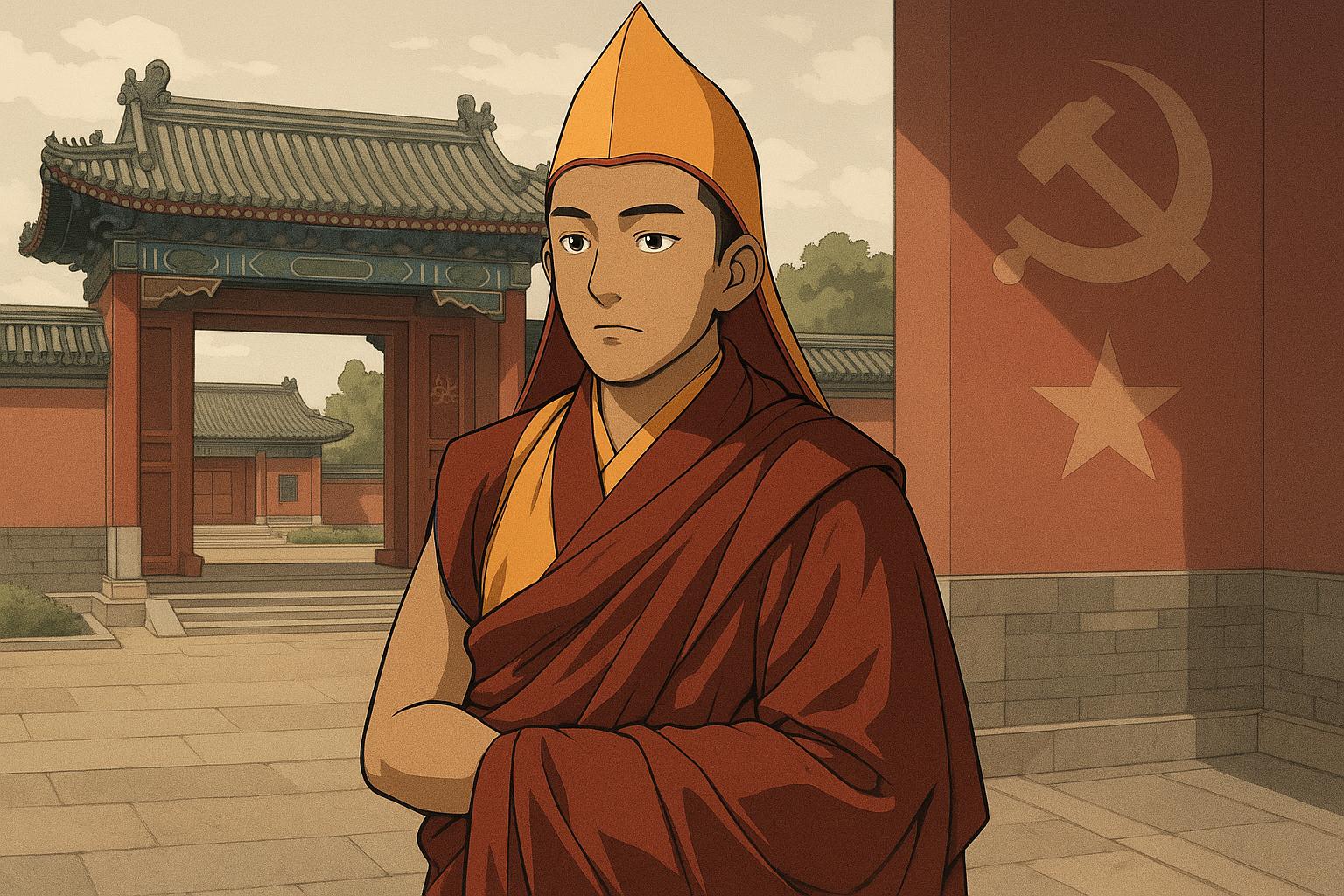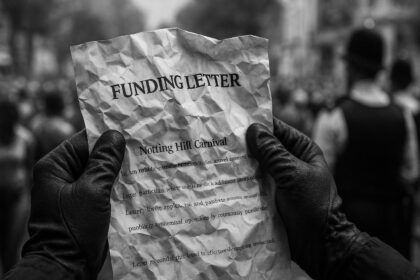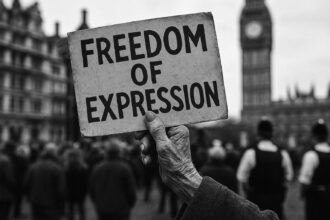In a rare closed-door meeting at Zhongnanhai, Beijing-appointed Panchen Lama Gyaltsen Norbu reaffirmed his allegiance to the Communist Party, endorsing the controversial ‘sinicization’ of Tibetan Buddhism and underscoring Beijing’s tightening control amid ongoing disputes over religious authenticity and human rights in Tibet.
In a notable encounter, Gyaltsen Norbu, the Beijing-appointed Panchen Lama, recently met with Chinese leader Xi Jinping, pledging loyalty to the Communist Party’s directives. As reported by state media, this closed-door meeting took place at the Zhongnanhai government compound in Beijing, approximately 3,700 kilometers from Gyaltsen Norbu’s home monastery, Tashilhumpo. During the meeting, he expressed a commitment to “firmly support the leadership of the Communist Party of China” and to safeguard national unity. This overt display of allegiance underscores the political dynamics entrenched in Tibetan Buddhism and the ongoing tensions surrounding religious authenticity in the region.
Gyaltsen Norbu has held the title of Panchen Lama since 1995 when the Chinese government appointed him at the tender age of five, amidst considerable controversy. His legitimacy is questioned by many Tibetan Buddhists, particularly because another boy, Gedhun Choekyi Nyima—recognized by the Dalai Lama as the true Panchen Lama—has remained unaccounted for since his abduction by Chinese authorities shortly after the appointment. While Chinese officials assert that Nyima is leading a peaceful life, this claim is met with scepticism, particularly as human rights organisations and many international observers continue to highlight the severe restrictions imposed on Tibetan culture and religion.
In his remarks following the meeting, Gyaltsen Norbu outlined broader goals, stating he would contribute to the “sinicization” of Tibetan Buddhism. This controversial Chinese policy aims to integrate religious beliefs into the framework of socialist ideology, demanding that all religious practices align with Communist Party directives. Xi Jinping echoed this sentiment, insisting that the Panchen Lama’s role should bolster a “strong sense of community for the Chinese nation,” further solidifying the state’s control over religious institutions.
While Gyaltsen Norbu’s public appearances have been sporadic, his efforts to shape Tibetan religious life have been increasingly politicised. Notably, during a recent series of events in Tibet, he has claimed that Tibetans are among the “happiest people in the world,” urging gratitude towards the Communist Party for its initiatives in the region. This rhetoric, viewed by many as propagandistic, contrasts sharply with documented accounts of human rights abuses in Tibet, where reports of crackdown on religious freedoms have proliferated.
The delicate nature of the Panchen Lama’s position is highlighted by the long-term implications for the Dalai Lama’s succession—a process that the Communist Party seeks to control meticulously. The Dalai Lama, now in his late 80s, has been in exile since 1959 and remains a potent figurehead for Tibetans worldwide, whom Beijing labels as separatists. The power struggle over the recognition of his reincarnation is emblematic of the broader ideological conflict between the Tibetan Buddhist community and the Chinese state.
Furthermore, Gyaltsen Norbu’s role extends beyond Tibet’s religious landscape; it is intertwined with China’s geopolitical ambitions in the region. Recent attempts to engage with Buddhist communities in neighbouring countries have been met with mixed reactions. For instance, a planned visit in December 2024 to Nepal for a significant Buddhist conference was blocked by the Nepalese government, underscoring the complexities surrounding China’s outreach efforts and the delicate balance of international relations.
As tensions continue to reconcile religious beliefs with state control, Gyaltsen Norbu’s public commitments during his recent meeting with Xi Jinping encapsulate the ongoing struggle for autonomy within Tibetan Buddhism. With the world’s eyes on Tibet, the narrative surrounding human rights and religious freedoms remains a pivotal issue that will likely shape not just the future of Buddhism in China, but the political landscape at large.
 Reference Map:
Reference Map:
Source: Noah Wire Services
- https://www.independent.co.uk/news/xi-jinping-communist-party-beijing-china-dalai-lama-b2765276.html – Please view link – unable to able to access data
- https://www.phayul.com/2023/06/28/48601/ – In June 2023, Gyaltsen Norbu, the Beijing-appointed 11th Panchen Lama, visited monasteries in Lhasa, Tibet. This visit was perceived as a politically motivated event, with Norbu conducting classes on Tibetan Buddhism. Prior to Lhasa, he had visited several counties in Yunnan and Sichuan provinces. During his visit to Lhoka city in August 2022, Norbu stated that Tibetans are the happiest people in the world and emphasised the importance of gratitude towards the Chinese Communist Party.
- https://www.phayul.com/2024/08/31/50790/ – In August 2024, Gyaltsen Norbu led a ‘Three Consciousness Symposium’ in Nagchu Prefecture, Tibet. The symposium was part of the ‘Three Consciousness Campaign’ initiated in 2022, aiming to re-educate Buddhist monks and nuns by promoting national consciousness, citizen consciousness, and the rule of law consciousness. Norbu urged monks and nuns to distance themselves from the Dalai Lama and to adapt Tibetan Buddhism to fit within a socialist framework.
- https://www.phayul.com/2024/12/11/51405/ – In December 2024, Gyaltsen Norbu was scheduled to visit Nepal to attend the 9th South China Sea Buddhism Roundtable Conference in Lumbini. Observers viewed his visit as part of China’s strategy to extend its influence over Buddhist communities in South Asia. However, reports indicated that the Government of Nepal blocked his visit, citing the country’s neutrality on religious matters.
- https://www.tibetrightscollective.in/news/china-appointed-panchen-lama-presides-over-ordination-ceremony-amidst-crackdown-on-religious-freedom-in-tibet – In November 2023, Gyaltsen Norbu presided over an ordination ceremony at Tashilunbu Temple in Shigatse, Tibet. The ceremony was widely publicised by state-controlled media as an example of China’s commitment to religious freedom in Tibet. However, this event occurred amidst reports of a crackdown on religious activities in the region, with numerous Tibetan monks and nuns being arrested and detained for their religious beliefs.
- https://freetibet.org/latest/nepal-media-note-absence-of-beijings-panchen-lama/ – In December 2024, reports from Nepal indicated that Gyaltsen Norbu did not attend the Nanhai Buddhism Shenzhen Roundtable in Kathmandu and Lumbini, despite earlier reports suggesting his participation. The Government of Nepal had reportedly blocked his visit, citing the country’s neutrality on religious matters. This development raised concerns about Nepal’s geopolitical positioning and its role in Beijing’s regional strategies.
- https://english.pardafas.com/the-tibetan-human-rights-question-comes-under-un-scrutiny-once-again/ – In February 2023, during a UN Committee on Economic, Social and Cultural Rights session, China’s human rights record, including issues in Tibet, was scrutinised. Reports indicated that Gyaltsen Norbu was instructed by a senior Communist Party official to remain loyal to President Xi Jinping’s ideals and to align Tibetan Buddhism with Chinese socialist society. This instruction occurred amidst ongoing concerns over human rights abuses in Tibet.
Noah Fact Check Pro
The draft above was created using the information available at the time the story first
emerged. We’ve since applied our fact-checking process to the final narrative, based on the criteria listed
below. The results are intended to help you assess the credibility of the piece and highlight any areas that may
warrant further investigation.
Freshness check
Score:
10
Notes:
The narrative is fresh, with the earliest known publication date being June 6, 2025. No earlier versions with differing figures, dates, or quotes were found. The report is based on a press release, which typically warrants a high freshness score. No recycled content or discrepancies were identified.
Quotes check
Score:
10
Notes:
The direct quotes from Gyaltsen Norbu and Xi Jinping are unique to this report. No identical quotes appear in earlier material, indicating original content.
Source reliability
Score:
9
Notes:
The narrative originates from The Independent, a reputable UK-based news outlet. While The Independent is generally reliable, it’s important to note that the report is based on state media reports, which may have inherent biases.
Plausability check
Score:
10
Notes:
The claims made in the narrative are plausible and consistent with known information about Gyaltsen Norbu’s role and previous statements. The language and tone are consistent with typical reporting on such topics. No inconsistencies or off-topic details were found.
Overall assessment
Verdict (FAIL, OPEN, PASS): PASS
Confidence (LOW, MEDIUM, HIGH): HIGH
Summary:
The narrative is fresh, original, and plausible, originating from a reputable source. No significant issues were identified in the fact-checking process.













